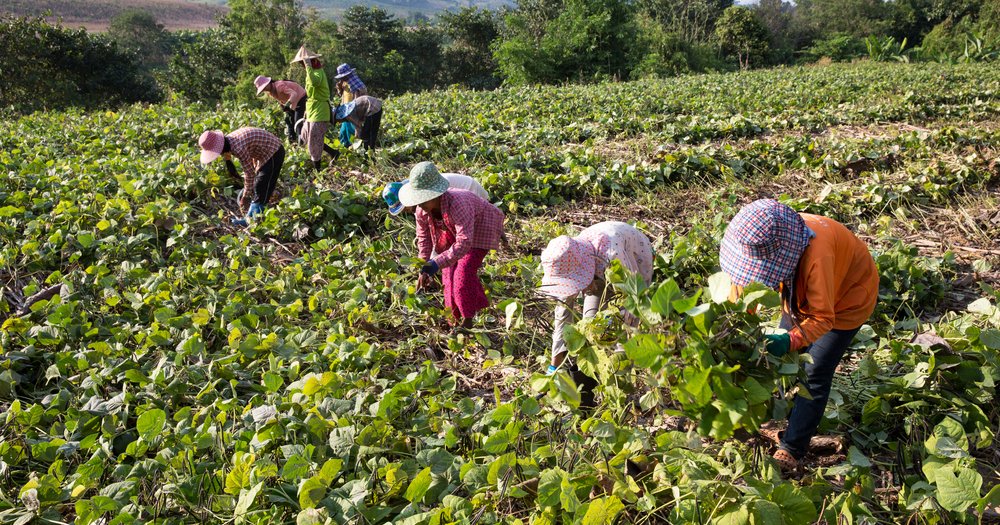Multinational companies are increasingly being held accountable for human rights abuses in their supply chains. Yet migrant workers – often the invisible backbone of global production – still face major barriers to justice. While some courts are opening doors, systemic reform is needed to ensure those doors remain open.
From farms in Spain to factories in Malaysia, migrant workers face long hours, unsafe conditions, withheld wages, and threats of retaliation. These abuses are not limited to countries in the Global South — they also occur in jurisdictions like the UK, particularly on farms supplying major supermarkets.
Despite the scale of exploitation, legal accountability has long been elusive. Companies often shield themselves behind complex corporate structures, claiming that responsibility lies with overseas suppliers or contractors. But recent legal developments are challenging this narrative.
Legal shifts: Holding parent companies to account in the UK
In landmark UK cases like Vedanta v Lungowe [2019] and Okpabi v Royal Dutch Shell [2021], courts ruled that parent companies can be held liable for harm caused by their subsidiaries abroad — especially when they exercise control over operations. These decisions have paved the way for transnational claims by affected communities and workers.
The Court of Appeal in Limbu & Others v Dyson Technology Ltd & Others [2024] allowed claims by Nepali and Bangladeshi workers to proceed in the English courts who were alleging forced labour and abuse at a Malaysian factory supplying Dyson. The court’s decision reflects a growing judicial openness to allowing migrant workers to seek justice in the English courts by holding UK companies accountable for abuses within their global supply chains.
Similarly, in Josiya and Others v British American Tobacco & Others [2021], the Court of Appeal allowed over 10,000 Malawian tobacco farmers to pursue claims against BAT and Imperial Tobacco in the UK for alleged forced and child labour in their Malawian supply chain. The case underscores that the English courts can serve as a forum for justice in transnational human rights claims.
In Begum v Maran [2021], the Court of Appeal held that a UK company could arguably owe a duty of care to workers in the Bangladeshi shipbreaking industry in relation to the sale of a ship for the dangerous conditions under which the workers were dismantling the vessel. This case further illustrates the expanding scope of corporate accountability under English tort law and how that applies to workers in abusive conditions abroad.
These cases collectively signal a shift in judicial attitudes in the UK. But this shift is not limited to the UK’s courts; other jurisdictions are increasingly willing to scrutinise the real-world impact of business operations and allow migrant workers to access legal remedy.
In South Africa, the owners of a cotton-fibre factory facing over 100 charges, including human trafficking and labour law violations, were convicted of human rights abuses of undocumented Malian migrant workers. In France, three people were jailed for human trafficking in the champagne industry, exploiting more than 50 mostly undocumented seasonal migrant workers.
For lawyers and advocates, these successes offer valuable precedents to support claims on behalf of vulnerable workers and communities.
Barriers to justice
Despite these legal advances, migrant workers still face steep hurdles. Jurisdictional challenges are common, with companies arguing that claims should be heard in the country where the harm occurred — even when local legal systems are weak or hostile to workers’ rights.
SLAPP suits (Strategic Lawsuits Against Public Participation) are increasingly used to intimidate claimants and their lawyers. These tactics – often using baseless defamation claims or procedural delays – can drain resources and silence dissent. In South and South-East Asia where many global supply chains originate, criminal defamation laws make SLAPPs particularly dangerous tools in the hands of corporate actors.
What needs to change
To make justice accessible for migrant workers, legal and legislative reform is essential. Key steps include:
Strengthening supply chain liability laws to hold multinationals accountable.Implementing the EU Corporate Sustainability Due Diligence Directive (EU CSDDD) to mandate human rights due diligence in EU member states.Developing a mandatory human rights due diligence law in the UK and elsewhere.Improving access to justice in countries where harm occurs.Enacting anti-SLAPP legislation to protect workers and advocates.
The adoption of the EU CSDDD represents an important step towards making justice more accessible for migrant workers. However, as pushback threatens key provisions and to derail implementation, it is crucial that the UK and other countries globally move forward with the adoption of similar frameworks to advance corporate accountability, as we are already seeing in Thailand, Colombia and South Korea. Mandatory human rights due diligence laws provide a legal foundation for holding companies accountable for the treatment of migrant workers in their supply chains.
Conclusion
Migrant workers are essential to global and domestic supply chains, yet they remain among the most vulnerable to exploitation. Legal progress, as highlighted in the cases above, show that some courts are increasingly willing to challenge corporate impunity. But for justice to be more than a possibility, it must be made accessible — through stronger laws, better support, and a commitment to corporate accountability.
Disclaimer: This article discusses legal developments and allegations made in ongoing litigation. No findings of liability have been made.
Oliver Holland is a UK lawyer whose practice covers environmental harm, human rights, and modern slavery including expertise in cross-border disputes.
